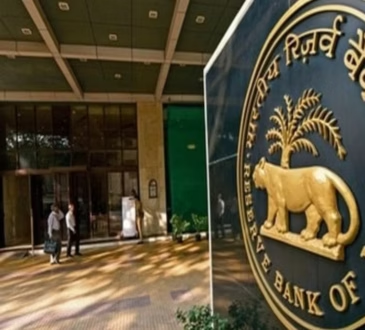The dollar is getting weaker. The US Dollar Index is down more than 8% since the start of the year, putting the currency at its lowest point in about three years.
Uncertainty around President Donald Trump‘s tariffs and fears of a looming recession have hurt the dollar.
Here’s what smart people and institutions have to say about its depreciation.
Deutsche Bank
Analysts at Deutsche Bank in a note on Thursday said they foresee a “major dollar downtrend.”
“The dollar bear market is finally here,” they wrote.
“At the core of the dollar bear market are three assessments: a reduced desire by the rest of the world to fund growing twin deficits in the US; by extension, a peak and gradual unwind in elevated US asset holdings; and a greater willingness to deploy domestic fiscal space to support growth and consumption outside of the US.”
Jan Hatzius, Goldman Sachs
“I believe that the recent dollar depreciation of 5 per cent on a broad trade-weighted basis has considerably further to go,” Jan Hatzius, chief economist at Goldman Sachs, wrote in an op-ed.
He listed one of the consequences of dollar weakness as putting upward pressure on consumer prices, which tariffs have already hit.
“Dollar depreciation reinforces our view that the ‘incidence’ of higher US tariffs will fall predominantly on American consumers, not foreign producers,” Hatzius said.
Ken Griffin, Citadel
Ken Griffin, Citadel’s billionaire founder, told Semafor’s World Economy Summit in Washington, DC, on Wednesday that Trump’s trade war was putting the US’s brand at risk.
He said when comparing the dollar to the euro, America “has become 20% poorer in four weeks” because of the dollar’s slide against the single currency.
“All you’re trying to do is tread water and not drown,” he added.
Apu Gomes/Getty Images
Torsten Slok, Apollo
“By depreciating the dollar and starting a trade war about goods, which make up less than 10% of US GDP, the US is risking that the rest of the world will slow their imports of the 80% of the US economy that is services, such as iPhones, Windows, Facebook, and large language models,” Torsten Slok, partner and chief economist at Apollo Global Management, wrote in a newsletter on Thursday.
“In addition, a depreciating dollar puts upward pressure on inflation and the term premium, which can create new macroeconomic challenges.”
PIMCO
“The US has long enjoyed a privileged position, with the dollar serving as the global reserve currency and Treasuries as the go-to reserve asset,” analysts at PIMCO wrote in a note, adding that this status was not guaranteed.
“If global capital flows into US assets dwindle, it could point toward a more multipolar world with a diminished reliance on a singular reserve currency.”
UBS
Strategists at UBS wrote in a note that the dollar has “weakened significantly.”
“Volatility in FX markets has moved up to levels last seen in 2022,” they said.
Following the recent dollar sell-off, the bank wrote that it’s refraining from dollar-based trades.
Mark Lennihan/AP Photo
Adam Turnquist, LPL
Adam Turnquist, chief technical strategist at LPL Financial, said: “Building trade war tensions with China have intensified growth concerns and increased expectations for Fed rate cuts, weighing on dollar demand.”
“Hedging costs to protect against downside in the dollar have surged to multi-year highs,” he said.
“A breakdown from the dollar’s consolidation range would not only be technically significant but could also stoke fear over the health of the US economy.”
Bank of America
The dollar has entered a secular decline, said analysts at Bank of America led by Michael Hartnett.
They wrote that the currency is trading 4.6% below its 200-day moving average: “Weaker US dollar will play out either slowly with lower yields or quickly with higher yields, it’s brutally flagged by soaring gold price.”
Shannon Saccocia, Neuberger Berman
SVB
“The US dollar has continued to lose value even as US equity and bond markets have stabilised,” Shannon Saccocia, managing director and chief investment officer of wealth at Neuberger Berman, said in a newsletter on Thursday.
“This is concerning for the longer term, as a simultaneous sell-off in both currency and bonds is associated with risky rather than haven countries and suggests structural damage to global demand for US dollar assets.”
If the dollar continues to lose ground, short-term investors outside the US may decide that “the pain from the currency outweighs the gain from the yield,” she said.





